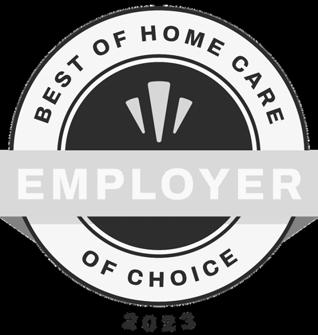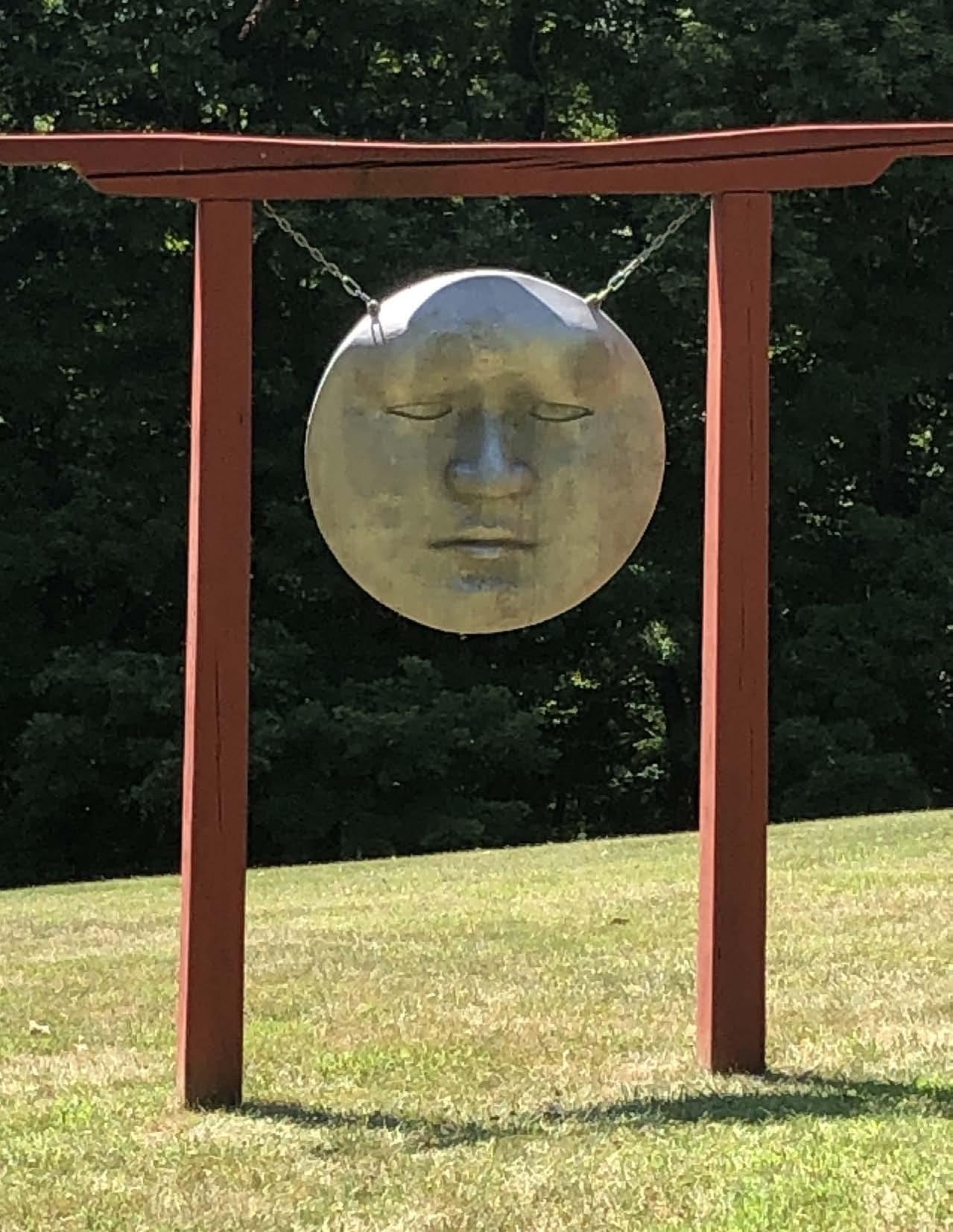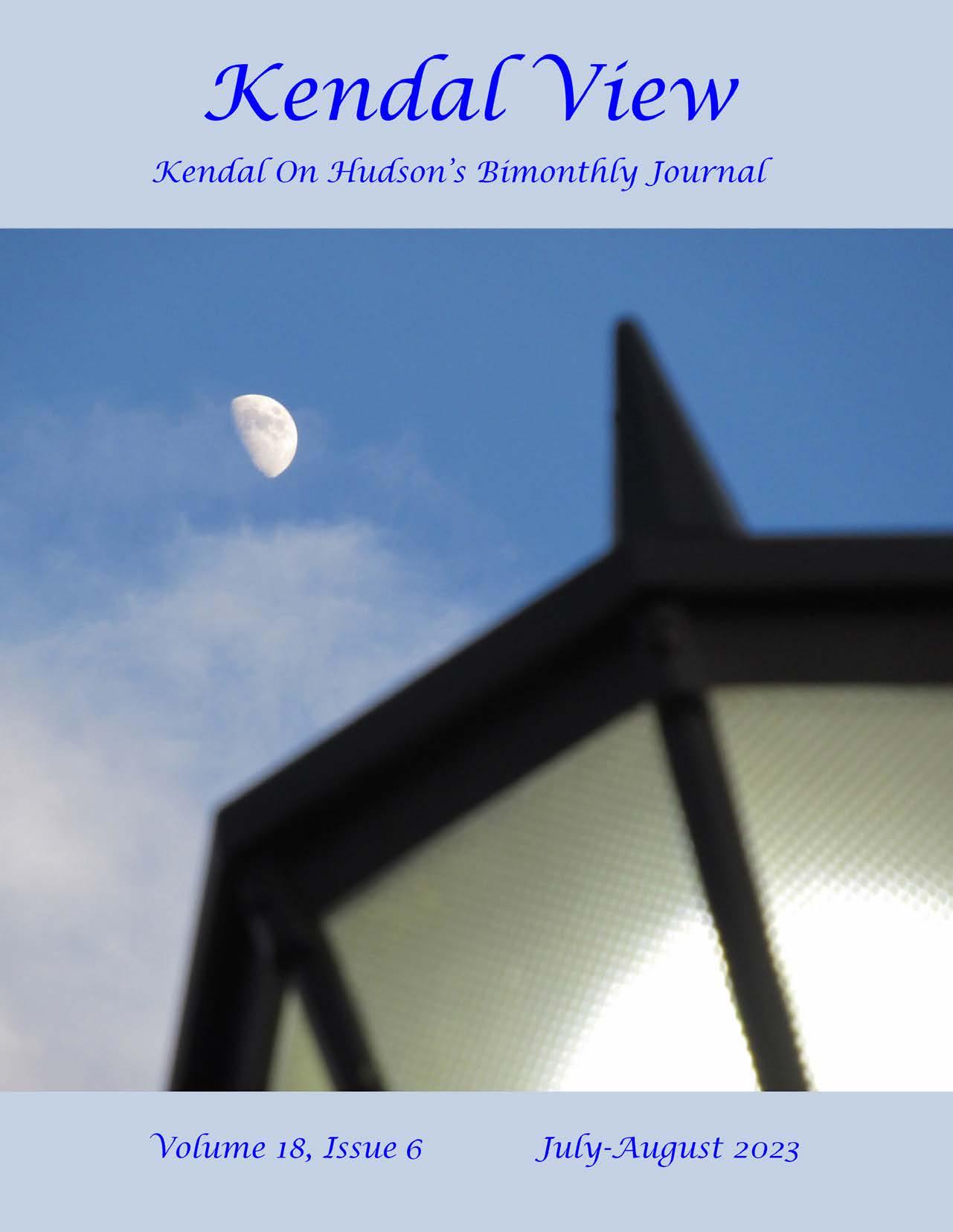
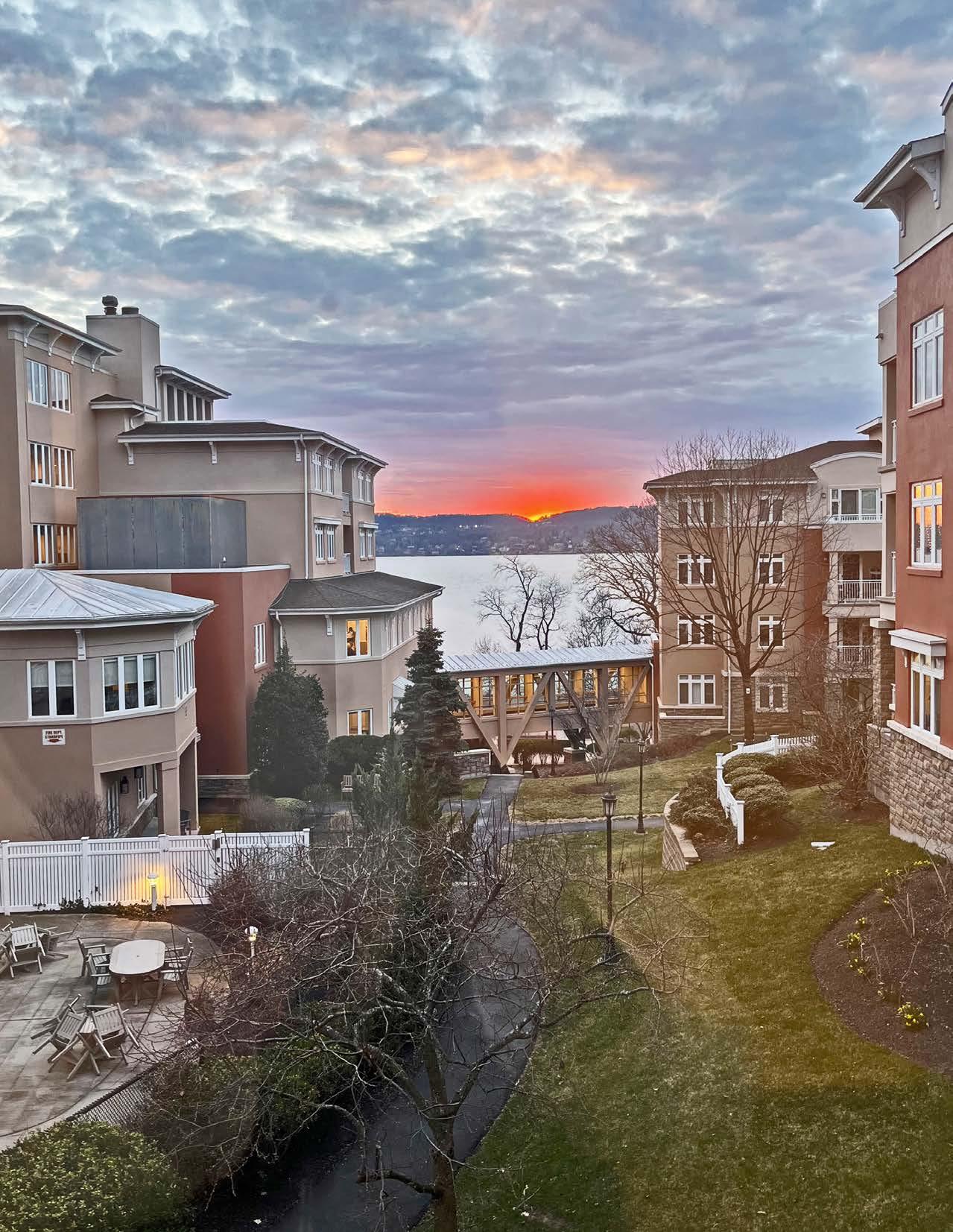 by Llyn Clague
by Llyn Clague
COVERS:
Arthur Brady took this photo of the moon over a Kendal street lamp . . . . . . . . . Front Cover
Amelia Augustus saw a nice sunset scene through the window of the Alida bridge and took this photo
Front Cover
Harry Bloomfeld saw this beautiful cloud formation over the Hudson . . Inside Rear Cover
Arthur Brady took this photo of the gong at the Hammond Museum in North Salem, NY
All inside photos (unless otherwise specified) are by Arthur Brady .
KENDAL VIEW STAFF
Editor Pat Taylor
Managing Editor Llyn Clague
Editorial Staff
Doris Eder, Muriel Fox, Hubert B. Herring, Edith Litt, Norman Sissman
Photography Editors
Arthur Brady, Caroline Persell, Richard Schneeman
Advertising
Peter McCuen, Director; Dianne Morris, Representative; Carolyn Klinger, Coordinator
Rear Cover
1
Shirley Wu Zanger, From Shanghai to Sleepy Hollow, Rema Sessler . . . . . . . . . . . . . . . . 2 Nancy Frieden: Proof That We’re Special, Muriel Fox 4 Dan, Norman J. Sissman . . . . . . . . . . . . . . . . . . . . . . . . . . . . . . . . . . . . . . . . . . . . . . . . . . 5 A Fractured Childhood, Hubert B. Herring . . . . . . . . . . . . . . . . . . . . . . . . . . . . . . . . . . . . 7 Meaningful Meals, Eugene DuBow . . . . . . . . . . . . . . . . . . . . . . . . . . . . . . . . . . . . . . . . . . 8 “How’re Duh Boys?”, Bill Lyons . . . . . . . . . . . . . . . . . . . . . . . . . . . . . . . . . . . . . . . . . . . 10 My Life as a Mystery Writer, Valerie Wolzien . . . . . . . . . . . . . . . . . . . . . . . . . . . . . . . . . 11 Transitions, Jan Maier . . . . . . . . . . . . . . . . . . . . . . . . . . . . . . . . . . . . . . . . . . . . . . . . . . . 13 A Modern Wedding, Martin Smolin . . . . . . . . . . . . . . . . . . . . . . . . . . . . . . . . . . . . . . . . . 15
The View, From the Top Edited
. . . . . . . . . . . . . . . . . . . . . . . . . . . . . . . . . . . . . . .
Inside
. . . . . . . . . . . . . . . . . . . . . . . . . . . . . . . . . . . . . . . . . . . . . .
Shirley Wu Zanger: From Shanghai to Sleepy Hollow
Rema Sessler
Shirley Wu Zanger was born in China in 1930 and moved to Kendal on November 26, 2021, to be closer to her children . Here is what happened in between . In China, Shirley’s family lived in an international section of metropolitan Shanghai Her home was a modern Western-style house with adjacent servants’ quarters . Her father worked for a government agency . Her mother, who had been recruited by missionaries to study in a Christian college in Indiana, spoke English . Shirley was educated at Catholic schools . In her convent high school, she was pleased with the curriculum, but resented the excessive strictness and restrictions .
When Mao Zedong, the Communist revolutionary, became Chairman of the People’s Republic in 1949, Shirley’s father was adamant in his refusal to live under Communism . He sold his property for gold bars, which he deposited in Hong Kong banks . With her father staying behind in Hong Kong, Shirley and her mother set off for the United States — with 19 trunks! On the boat, her mother traveled first class, but there was only a third-class ticket available for Shirley, who actually enjoyed the experience of traveling with many of the students .
After a train trip to Indianapolis to visit an aunt and uncle, Shirley’s mother settled in Fort Lee, New Jersey . Her father often visited . Shirley enrolled in Manchester University in Indiana, her mother’s alma mater . Graduating in 1953 as an art major, she moved to New York City, where she lived with a few roommates . She got a job with American Express, where she was expected to look pretty, file, and appear busy. She was bored, so although she didn’t drink, when her brother, who had come the the U . S . earlier on his own, invited her, she reluctantly accepted his invitation to attend a cocktail party with him . There she met a woman who connected her with a prominent textile designer . Shirley, who had an impressive portfolio, was hired. She felt independent, fulfilled, and respected. She stayed for four years, leaving to marry a Chinese man whom she had met through a friend . He was an electrical engineer working on a government grant for RCA . Although he spoke no English, he was highly intelligent . They bought a large house on the outskirts of Princeton, New Jersey .
Not one to sit idle, Shirley became a volunteer in the pediatric departments of both Bellevue and Presbyterian Hospitals . She would park her car at Princeton station to take the train into NYC. This experience confirmed her plan to work professionally with young children. She and her husband had been married for two years when their son, Larry, was born; Nancy was born two years later . When the kids were four and six, Mr . Wu accepted a job in Los Angeles, and the family moved to California .
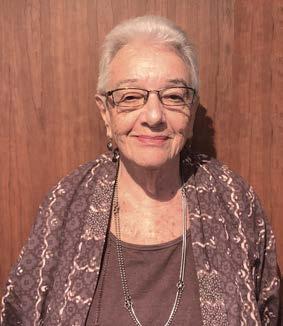
2
When her youngest child began school, Shirley started work, against her husband’s strong opposition . While teaching in a Headstart program, she attended community college in the evenings, becoming eligible to be licensed to teach elementary school. Her five years of teaching provided useful experience, and her knowledge of Mandarin, Cantonese, and Shanghai dialects prepared her for her next position. There was at this time a large influx of Asian students into Southern California .
Shirley’s understanding of the differences in Chinese and Western culture qualified her to make a significant contribution to the education of these children. She was recruited to train Western teachers how to surmount some of the cultural barriers to communicating with Asian students and how to confer optimally with Asian parents . She occupied her teaching position for eight years . During this time she attended Pepperdine University on Saturdays, receiving a Master’s degree in School Administration . She was then hired as a supervisor of teachers at after-school centers, facilities mandated by the state of California to accommodate children of working parents . Although she much preferred working directly with children, she kept this job until she retired at 65 .
The discrepant values between herself and her husband resulted in a divorce after 14 years of marriage . Retired, divorced, her children grown, Shirley, as always seeking to broaden her horizons, joined lifelong learning groups at UCLA . There she met Dr . Percy Zanger, a Brooklyn-born pediatrician He was old-fashioned and insisted that they marry, which they did . She was 70 and he was 80 . She became a docent at the Getty Museum and volunteered at the local library and the Arts Council of UCLA . They had a loving and joyous life together for 13 years, until he died aged 93 .
For seven years Shirley stayed on in their large and luxurious home. It was a difficult decision for her, but she agreed to come to Kendal in order to be near her children and grandchildren . Her son, Larry, a Harvard graduate, is a tenured sociology professor and former department chair at NYU, and lives in Manhattan . Her daughter, Nancy, a Stanford graduate, lives in Pleasantville and is the Associate Concert Master of the Metropolitan Opera orchestra . If you don’t know who Shirley is, look for a small woman sitting in the front row of the Gathering Room, eyes gleaming with pride whenever the Met opera is on the screen .
Shirley is settling into Kendal life, but is still dismayed at giving up a lovely home for a tiny apartment, and, since she still has her Chinese palate, is learning to adjust to Kendal food . On the other hand, she appreciates her view of the river and the bridge, the caring people surrounding her, and an administration that listens to her, while she enjoys physical therapy, the opera, and the proximity of her family . She has a grandson who will soon be graduating from the Culinary Institute of America, and often gathers her family together for feasts prepared by him . Pretty content, she is relaxing for a while, and is considering embarking on a quilting project .
3
A Fractured Childhood
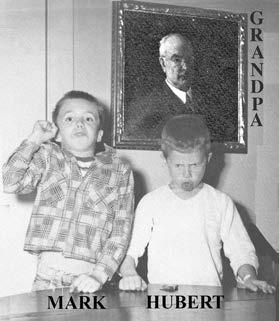 Hubert B. Herring
Hubert B. Herring
When my brother, Mark, died last year, I lost the last of my childhood family – and the last chance of unlocking the mystery of what tore that family apart 70 years ago . Not that communication was ever Mark’s strong suit: About a year after our mother died –30 years ago now – he sent me some estate papers, and the second line of the cover letter read: “Dianne and I are separated . ”
I can’t say I was surprised; their marriage had been toxic for years . When I visited them in the 80s – they’d been married two decades – the tension was palpable . While my early marriage ended after five years, his lingered. They could not have been more different: Mark the engineer, who could take anything – a radio, a car – apart, and, amazingly, put it back together . He built his own house, rebuilt a car or two, had a stellar career at NASA . But he was a damaged person . (Dianne was more the artistic type – potter, animal lover.)
Step back a bit: Our mother, 17 years younger than our father, was always fragile, high-strung . Just months before I was born, she had been yanked from familiar East Coast surroundings to the wilds of Southern California, when our father got a teaching job there . She had her piano, of course, her lifelong passion . But our father, an eminent historian, was gone half the time, on lecture tours or traveling in Latin America, his specialty . And our mother was stuck home with two rambunctious boys .
And one day in August 1952 – I was 8, Mark 10 – it all proved too much . Letters I later found suggest that she was violent with us. Our father – in a letter to his first wife, of all people – said he had “rescued us just in time ” It was soon decided – I assume our mother consented – that she would spend some time at a mental hospital . But what to do with me and Mark? I can’t imagine ever sending my children off at that age . But our father was deep into writing the first edition of the textbook that would cement his reputation: nothing was going to get in the way of that . So he packed us off to a boarding school high in the Southern California mountains (The school didn’t even have a third grade; 8 is too young to be away at school. Simple – bump me up to fourth grade.)
This was all so traumatic that I recall nothing from before I was 8, no memory of that August day, little memory of that school . I was so confused that I sometimes called my housemother –Mrs. Bell – Helen (for some reason, Mark and I called our mother by her first name).
I did not even know until I was nearly 30 what had happened; early 1950s taboos meant such things were never discussed . Amid the heightened emotions of my divorce, I was with my mother and made some joking reference to “the curtain,” our shorthand for my block on early memories . She looked at me, tears in her eyes, and said, “Do you really not know what happened?” Then she told me that she’d been hospitalized for the better part of two years .
7
And she ran from the room and couldn’t talk about it anymore . In an instant, my life story was turned upside down .
The only other time it came up was when I asked her if I’d ever taken piano lessons . Naturally a pianist would want her children to learn piano . “But you did,” she said . “Don’t you remember?” “No, why did I stop?” “That’s when the family fell apart.” Again, she fled the room in tears . That was it – just those two times . And my father had died when I was 23, so there would be no answers from him . My half-sisters – three decades older – were off living their own lives . So: Mark and I shared this troubled past, but our responses were radically different. Once I found out what had happened, I was intensely curious to find out more . But he would never talk about it . He was the executor of our mother’s estate, so when I sent for her psychiatric records, he had to make the official request. And when he got the records, he said something like, “I don’t know why you want to dig all this up . ”
Another thing: after our father died, my mother said, “You don’t want to see the body, do you?” I was still in such shock that I said, “No, I guess not ” I’ve regretted it ever since So when she died, I hurriedly flew across the country, intent on seeing her body before it was cremated . It was an experience I would not have missed . But at the funeral parlor, Mark wasn’t interested, though she was in the next room .
There were times that Mark and I were close in a way, always involving some project . When we were perhaps 14 and 16, we bought a Model A Ford and set about restoring it, which mainly involved him doing the work and me handing him tools . (For all his skills, though, the car never made it out of the driveway.)
Then there was the time that he and Dianne and their two young boys visited me and my first wife, then living in the Catskills. Ever the project-doer, Mark started poking around the bathroom in our old house . “We should probably replace this wall,” he said . “And that ceiling doesn’t look great .” P retty soon after, we had demolished the whole thing and rebuilt it . The only problem: it rained most of the week, so there were comical scenes of us all using the toilet holding an umbrella . An adventure, and a kind of fond memory . It isn’t much, but now it will have to do . No, we weren’t close . . . but there’s still a hole in my life .
Meaningful Meals
Eugene DuBow
During my 90 years, I’ve had many important meals . Two, however, stick out as the most significant – one in Berlin, the other in Washington Heights. Neither because of the food, though . One had some serious political and religious meaning; the other was more personal and to me, as it turned out, more important .
8
The politico-religious meal took place in East Berlin, the capital of the German Democratic Republic (better known as Communist East Germany) in 1983. Building on a relationship my agency, the American Jewish Committee (AJC), initiated in 1980 with West Germany, I thought it would be possible and perhaps interesting if we could take a group to East Berlin to visit the very small Jewish community there . I was told the Easterners would not welcome us . Wrong! They wanted “most favored nation” tax status with the U . S ., and so what seemed impossible became possible .
A couple of months later, a group of 30 AJC leaders visited West Berlin and were taken by a U S Army bus to a hotel in the East, where we were welcomed by the “State Secretary for Religious Questions.” (The title was in German and seemed very strange). However, he was an important old-line Communist leader and had arranged to have the “leaders” of the East Berlin Jewish Gemeinde (Community) meet with us. They didn’t know what to think, and neither did we . However, when Jews get together, no matter who and where, there is plenty to talk about We were assured that there was no antisemitism in East Germany and no poverty (both untrue). There were only a few hundred Jews in the East, but they were well taken care of . They had prepared a sumptuous meal for us at the hotel: it was probably the best meal served that year in East Berlin .
I got to meet the “President” of the Gemeinde and was convinced that the small group of Jews was trying their best to maintain practicing their religion . When I asked him if there was anything I could do to help them in this effort, he replied that there were three things they needed more than anything else . First, they did not have enough kosher wine for Passover . Second, they did not have enough prayerbooks in German, and, of course, they did not have a rabbi to conduct services for them . I promised I’d try to help .
After getting back to New York, I dug in . After all, I was a dedicated Jewish professional and a pretty good organizer. My first call was to the Manischewitz Wine Company (the major provider of kosher wine in the U.S.). I identified myself and spoke to someone who said he was the manager . I explained the situation of a small Jewish community in need . He didn’t pose any questions, simply asking, “How much and where do I send it to?” It took a little negotiating with the East German government, but the shipment went through . Unbelievably, the second task proved even easier . I asked myself, “Where in the post-Holocaust world would I be able to find Jewish prayerbooks in German?”
In 1982, during my first trip to Germany, while in Munich I had met a young Jewish Ph.D. Munich University graduate, Rachel Salamander, who had decided to open the first Jewish bookstore in Germany . I called her and put the question to her . “No problem,” she said . “We get them from Switzerland .” I ordered 50 and had them sent; AJC footed the bill .
The third problem of getting a rabbi to live in East Berlin was the biggest of the three . I actually found a Berlin-born, retired Reform rabbi in Chicago whom I knew from my posting there by AJC in the 1970s . He agreed to lead the High Holy Day services but certainly would not want to live there . He actually did what he said he would for two years running, while I continued the search for a permanent rabbi .
9
Isaac Neuman was a Polish-born Reform rabbi, who, amazingly to me, had wound up in Champaign-Urbana, Illinois . However, he had lost his congregation and was “between jobs .” Divorced and alone, when I spoke to him, he showed considerable interest . He eventually came to New York and we went to East Germany together . There was much discussion . (He spoke Yiddish, which was close enough to German that he could get by.)
Eventually he took the job, moved to Berlin, and became the Grand Rabbi of East Berlin .
Not all good things have a good ending, however . Rabbi Neuman, after about six months, had a falling out with the community and left after a nasty farewell which was written up in The New York Times It had to do with a woman whom he had fallen in love with and whom the East Germans would not let out . They eventually did, and the two married . This left a bad taste in the mouths of all involved who had tried to bring some Jewish life to the Communist East . Six years later the Berlin Wall came down and the East German Gemeinde was taken over by the West and merged into a United (Einheit) Jewish Community. End of story.
The second meal referred to earlier took place in an Italian restaurant in Washington Heights in 1960 . A woman of whom I had become enamored, and with whom I had a back-andforth relationship for two years, drove up from Virginia, where she taught . We were both exhausted from the frequent driving between Manhattan and Sweet Briar College . After the first course, I said, “I think we should get married.” She replied, “I think you’re right.” The pasta was delivered, and we settled down to a good meal . Sixty-two years later, we’re still married . Some things do end well!
“How’re Duh Boys?”
Bill Lyons
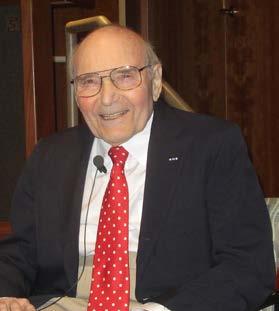
At college I was invited to join a fraternity . Its home was in a big, three-story Victorian house in Brookline, Mass . There was one telephone for all 26 fratters. It was on the ground floor, a dial landline (no cell phones in 1946). When a call came in, the nearest to the phone answered it and shouted up the stairwell who it was for .
On my second day . I was nearest when it rang . I said, “Hello,” and a deep, guttural, older man’s voice asked, “How’re duh boys?”
I replied, “The boys are fine. And how are you, sir?”
WHAM! The phone clicked off with an angry voice going, “AARRR!”
I shouted up the stairwell, “Some guy asking about our health . He hung up!”
10
“Who did he ask for?” someone yelled down .
“Nobody . Just ‘How’re the boys?’ ”
“That Was My Dad!”… and downstairs on the run came Howard DuBois! He grabbed the phone and dialed “Hi Dad… Yes, I heard Yes, I know He’s a new pledge… Today? Yes See you here at six . Great!”
An explanation: The gentleman caller was originally named “Dubinsky .” By the time of the call, he had become the owner of the largest uniform maker for police and fire departments in the United States . His wife had convinced him to change their name to “DuBois” (“better for the business”), which she pronounced “dew bwah.” The name and spelling was to be “DuBois .” Fine . But Mr . D . would only go so far …
“No! My customers in Kansas City say, ‘Doo BOYS’! Same in Dallas . Same in Seattle . Same everywhere, except New York and Boston! No . I’m DuBois, pronounced DewBoys, and that’s it!”
They invited me to join them, and we had a wonderful dinner that night, Howie, his Dad and I . Mr . D . was a raconteur and a historian with stories of every U . S . city where he sold his uniforms . And the best joke teller I’ve ever heard . Just a warm, enjoyable guy who differed with his wife on how to say their name .
My Life as a Mystery Writer
Valerie Wolzien
I grew up wanting to be writer – preferably a novelist because I loved novels – but what could I write? As a child, I read widely: histories, biographies, science fiction, romances. I majored in English Lit . in college and fell in love with Jane Austen, Dickens, E .M . Forster, Thackeray, and, of course, Virginia Woolf – geniuses all. I was confident that I could not duplicate, or probably should not even try to emulate, their work . So back to the question: what could I write?
One dreary day I found the answer on a round oak table just inside the entrance to the Green Bay, Wisconsin, public library . A librarian had arranged the mystery novels of Agatha Christie with a large sign asking readers, “Have You Read These Books Yet?” Although my father had read and loved mystery novels, I had pretty much ignored the genre . But it was raining, and I had a weekend coming up with nothing much to do, so I checked out The Murder of Roger Ackroyd, The Mysterious Affair at Styles, and The Murder at the Vicarage . By dinnertime the next night I was hooked . That summer I
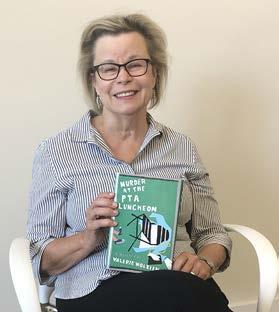
11
read all of Christie, and many novels by writers of the so-called “Golden Age of Mysteries” – Margery Allingham, Patricia Wentworth, Ngaio Marsh, and others – always with an eye on what made those books work .
Then I began writing, following what I perceived to be the traditions of the genre, only I brought those traditions up to date . Instead of a quaint village in England, I set my novels in an affluent suburb of New York City. Instead of the village vicar, I wrote about an elementary school principal . And instead of a know-it-all Hercule Poirot, or a perceptive Miss Marple, knitting as she pondered hideous murders, I created an amateur sleuth, Susan Henshaw, a slightly insecure suburban housewife who finds herself involved in murder while raising two children and driving carpools . I was truly writing about what I knew . When I began, Susan was the same age as I was; as I aged, she did as well. Her name was an homage to the five girls named Susan in my kindergarten class, and I found Henshaw on a book my son was reading and left on my desk, Dear Mr. Henshaw, by Beverly Cleary .
Luckily, I was writing what, at that time, editors were looking for: cozy mysteries with little blood and gore, mysteries that “would appeal to women .” A nd, in those days, it was easy to get my books into stores, back before Amazon arrived and stores vanished . Not only did Barnes and Noble and Borders have large mystery sections, but there were dozens of independent bookstores specializing in mysteries all over the country. There were five in New York City alone A writer could visit all of the stores in the morning, sign books, schmooze with owners and staff, and arrive in time for a late lunch in Midtown with an editor or an agent .
And the genre was expanding . Annual conventions dedicated to mystery and crime novels drew writers, readers, editors, and publishers to celebrate mystery novels in cities from Anchorage, Alaska, to Bristol, England . Organizations such as Mystery Writers of America and Sisters in Crime had made the isolation of a writer’s life a thing of the past, and they sponsored symposiums where experts in criminology were on hand to answer technical questions about poisons, autopsies, and police procedures .
Almost from the beginning there had been historical mysteries, but suddenly there were mysteries set in the future as well . Locations were expanding until today they are almost infinite. You can see this by taking a quick look at Henry Schacht’s marvelous collection of international mystery novels located by the Alida bridge .
Some of the many changes are for the better, and some maybe not . Sleuths are no longer only either amateur or professional. It turns out that in fiction anyone can set out to solve crimes . Seemingly every profession is represented, from religious leaders to undertakers, from caterers to culinary critics . Currently there’s even a popular series in which a dog is the detective .
There weren’t (as far as I know) any canine detectives when I was writing, but diversity had already moved beyond police inspectors in Oxford . When I wanted to begin a second series and asked about setting it on a resort island, while creating a contracting company
12
that only hired women, my editor was enthusiastic . And so my Josie Pigeon series began . At that time we lived in a house built at the end of the Civil War; there were always plumbers, electricians, and builders around, keeping our four walls standing and ready to help with technical information I might require .
Twenty-four of my mysteries were published over several decades, and back then writers got a lot of help . I worked with excellent editors, all of whom made sure my plots made sense, my characters were consistent, and my timelines were logical . My editor sent me so many Post-It notes with “What day are we on here, Valerie?” written on them that I wrote one book in which all the action – the murder, the investigation, the discovery of the killer’s identity, as well as a wedding – happened in twenty-four hours .
I had excellent copy editors, wonderful artists to do the cover art, and lovely publicists who appeared at book signings to support me when the room was crowded with people who came for the name of my agent, rather than to buy a book . I have often suspected those people were thinking something along the lines of, “If she can get this book published, she must have a really good agent . ”
After writing more than two million words, my last book was published in 2005, the year that my editor retired, my agent retired, and I decided it was time for me to retire as well . But I knew then how lucky I was to have been writing when the publisher’s editorial, financial, and publicity support could be taken for granted .
While my books are out of print, these days you can still find them online and from lumebooks .com or through Amazon Kindle . Print copies of many are in the KoH library . And here at Kendal-on-Hudson the most frequent question I get is why not set a mystery in a retirement community? I tried that once . And my manuscript was rejected . Old people don’t buy books – that was the reason given . They apparently haven’t visited our library, many of the apartments at KoH, or the Village Bookstore in Pleasantville .
Transitions
Jan Maier
I was once asked how I made the transition from New York City to KoH . The question set me thinking, and I came up with the following three factors: keeping old contacts, transporting one’s interests, and adding new ones .
Keeping contacts . This made change of residence less jarring, creating a link between old and new . A friend from NYC, knowledgeable about plants and fungi and treasurer of a recognized New York mushroom club, came for a walk in the Rockefeller Preserve . In one short fall walk, she identified half a dozen mushrooms of varied shapes, sizes, colors, and
13
settings, all non-poisonous . Ever since, as I walk in the Preserve, I have had a new source of pleasure, admiring and photographing the mushrooms and sharing my sightings . My mushroom club friend admonishes me not to eat any mushrooms; she knows what to look for, but I do not . So I heed her instruction . Another friend visits every other week . Weather permitting, we play Scrabble on the Terrace . She loves the Terrace, and I see it with new eyes when she visits . The visits are not one-way . I meet NYC friends for concerts, museum and film outings, and my Scrabble-playing friend and I alternate visits.
Transporting interests . Music, art, books, history, photography, and other interests can be pursued outside NYC . Just because the Metropolitan Museum of Art is no longer around the corner doesn’t mean that one has moved to a cultural wasteland . The museums are smaller than the Met and may have a different focus: historical — Kykuit, Sunnyside, Olana, John Jay Homestead — or outdoors, like Storm King . I’d never heard of the John Jay Homestead until I moved to KoH, and it fascinated me . I’d never been to Kykuit until I moved here, and it was magnificent. On a KoH trip to an Italian art museum, I became mesmerized by two beautiful marble columns treated in an unusual but beautiful manner . To top it off, there were donkeys in back of the museum . Where in NYC can one admire both art and donkeys?
As for music, it’s all around, and many times in more pleasant settings than Manhattan . Coming back from a Friends of Music concert in Sleepy Hollow, I looked at the night sky and the river with lights on the bridge and the opposite shore and thought how nice it was not to have to spend an hour or more on a subway and train to get home . One of the best concerts I ever heard was a choral piece in Mt . Kisco . Two soloists bounced parts of a Bach cantata back and forth to each other with complete mastery and obvious enjoyment and virtuosity . One of them was later featured on a WQXR broadcast of The Messiah .
As for books, the Warner Library feeds me books as fast as I can digest them . Adding new interests . In my case, that meant looking for and being open to new experiences, sights, and information, and enjoying finding out about available resources. I did it (and I hope to continue to do so) by interacting with fellow residents, by reading (Spotlight, local publications, Internet) and by observing. I remember going to a pre-pandemic talk presented by the Rockefeller Brothers Fund about the carriage collection of Kykuit . The speaker was a professional carriage driver and he spoke about his experiences driving the carriages on the local trails and gave us information about the different types of carriages all around us in the Kykuit Carriage House .
Cultivating new interests . As for nature, I have come to appreciate it in a way I never did before . If you had told me I would one day admire a string of red leaves left stubbornly clinging to one side of the tree outside my window, rather as if the tree had a red boa slung over its shoulder that it didn’t want to let go of, I would have said you were bananas . If you had said I could walk 5 . 5 m iles one day, enjoy every step, and feel fresh as a daisy, I would have repeated my accusation . The Hudson is a constant, ever-changing source of delight .
The three steps require curiosity, initiative, and positive thinking; if one doesn’t have such a mindset or can’t develop it, then there is a problem . But most people who end up here at
14
Kendal have those attributes or can at least encourage their development . A fact that made it easier for me was that there were no deadlines . The adjustment didn’t have to be completed in one day, one month, or even one year . It is an ongoing, enjoyable process .
A Modern Wedding
Martin Smolin
Don’t ask me if I’m illegal . It isn’t done . It’s rude and intrusive . Besides, who is going to admit to being here illegally? Rosita was not documented. When she left Ecuador, she flew to Santo Domingo and hopped a boat ferrying people across the dangerous Mona Passage to Puerto Rico . In those days, the INS wasn’t watching closely, and agents never checked Rosita’s ID when she boarded a plane to New York, posing as a Puerto Rican .
Her older brother met her and set her up as a housekeeper/babysitter in Chappaqua . She took care of a wealthy family’s kids, cleaned the house, learned English, got a car, and, upon her brother’s insistence, attended Pentecostal services and prayer sessions several times a week . After a few years, the children no longer needed extended babysitting, and how much housecleaning can one family require? Rosita found additional work of a similar nature with our next-door neighbors, where I met her .
Rosita was always affable and would talk about the neighborhood, but never about her employers . My wife, Ann, and I were impressed, and, when we needed a replacement for a housekeeper who had left, we asked our neighbor if she objected to our approaching Rosita . No problem . Soon she was established on a routine in our home, and we learned about her likes and dislikes . For instance, she felt put upon by her brother, who was adamant about attending church and prayer sessions and not dating, not smoking, not drinking nor dancing . It was too rigid a life for Rosita . She also began to complain about the family she lived with; they were taking advantage of her, she thought . They would go out evenings leaving the dirty dishes for her to clear and the kids to supervise . And would you mind doing the laundry? Hope it’s not an imposition, Rosita . After a hard day cleaning other people’s houses, it was .
Just about the time that Rosita began complaining about her living situation, Ann’s mother, Rose, also needed a cleaner and she was short on money . Rosita moved into Rose’s second bedroom in exchange for keeping the house clean . And Rose, now in her eighties, would no longer be living alone . It was the perfect arrangement . The two Roses became friends: Rosita taught Rose Spanish; Rose taught Rosita English . They shopped together and watched telenovelas while snacking on popcorn .
After a year of this menage, Rosita met Eduardo at church . They became an item and planned to get married In the meantime, Eduardo moved in with Rosita Now there were three people in the apartment . We used to say that Eduardo lived in a rose garden . He promised
15
to repaint the apartment and to make repairs. He started his own roofing business and was putting away money for a house .
A handyman’s two-family house was purchased . The wedding date was set . The happy couple were to be married in the very same Pentecostal church where they had met and which Rosita’s brother attended . Ann and I and Rose received invitations for the wedding and reception . We decided that cash was a suitable gift to start the couple on their life’s journey . We drove over early to the church, basing our expectation on our own experiences in coming early for hors d’oeuvres at a Jewish wedding . Not so for the Pentecostals: the church was padlocked . We knocked on the door . After a while a teenaged boy opened it and invited us to sit in a pew until the pastor arrived .
He was a stocky man who told us he was originally from Puerto Rico . He knew Rosita and Eduardo and thought they were a charming couple . Guests began arriving at the church . Many were young children who sat quietly . Rosita, wearing a long white gown, entered with Eduardo in his new suit at her side The pastor welcomed them, told them how they should love each other, obey God, and always be kind and merciful . A ring was produced, a kiss was planted, and they were pronounced man and wife under the laws of New York State . All the guests were invited to a reception in a relative’s apartment .
The apartment had a large room, bare except for the folding chairs along the walls . We were greeted by every guest . Each one shook hands and sat down . Children were running about everywhere . The bride and groom were nowhere to be seen . A tray with glasses of soda was handed around . We were asked to explain who we were, and the adult guests, all in their late 20s and early 30s, told us about themselves and their work as limpiadoras, carpinteros, pintores, enfermeras, and teachers’ assistants .
Then Rosita appeared, carrying a large aluminum tray of take-out lasagna . Other women popped out of the kitchen and brought in trays of vegetables . Paper plates and plastic cutlery were distributed and the meal was consumed while balanced on laps . Later came coffee fortified with sugar, Latin-American style.
It was getting late and Rose was ready to leave Saludos and buenas suertes On the trip home, Rose made an astute observation . She said, you know, we were invited to be the parents . She said she remembered just such weddings when she was a little girl, with kids running around, catered food, and no old folks . The old ones were all back in Russia and Galicia .
16
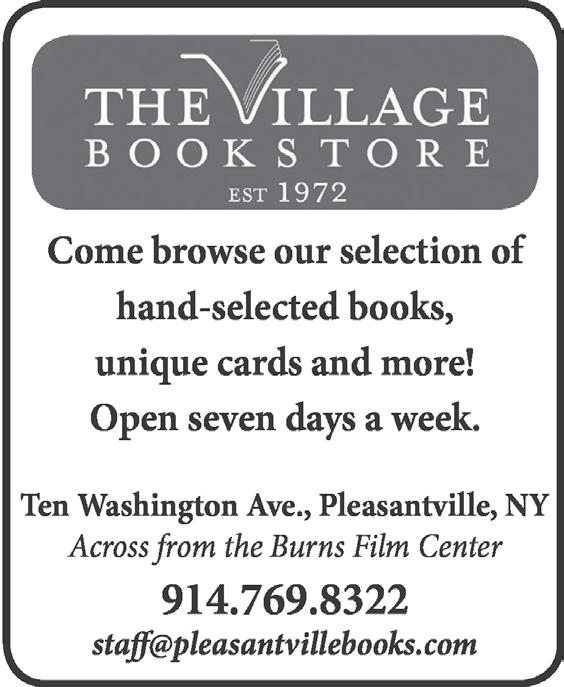
17 Index of Kendal View Advertisers Allan Block Insurance . . . . . . . . . . . . . . . . 18 All County Car & Limo Service . . . . . . . . 23 Amico Senior Transitions . . . . . . . . . . . . . . 18 Angels on Call Home Care . . . . . . . . . . . . . 24 C A R S Repair Service 21 Coffey Funeral Home . . . . . . . . . . . . . . . . . 18 Dr . Kevin Jong, Dentist . . . . . . . . . . . . . . . . 19 Dwyer & Michael’s Funeral Home . . . . . . . 20 Enrico Hair Care . . . . . . . . . . . . . . . . . . . . 22 FYO Accounting & Tax Service 19 Grape Expectations Wines & Liquors . . . . 21 Harnik Bros . Jewelers . . . . . . . . . . . . . . . . . 22 Home Again Transitions . . . . . . . . . . . . . . . 23 Hudson Financial Services . . . . . . . . . . . . . 22 Hudson Pharmacy & Surgical 20 Jazz Forum . . . . . . . . . . . . . . . . . . . . . . . . . 20 Mickey’s Automotive . . . . . . . . . . . . . . . . . 19 Phelps Hospital . . . . . . . . . . . . . . . . . 17 and 23 The Village Bookstore . . . . . . . . . . . . . . . . 17 Van Tassel Cleaners 21 Village Wine & Spirits . . . . . . . . . . . . . . . . 22 PHELPS HOSPITAL VITALITY PROGRAM Join us for our virtual health and wellness monthly programs Learn more and register for our virtual programs on the Phelps events webpage at: phelps.northwell.edu/events For more information, please call (914) 366-1150 or email vitality@northwell.edu. Breakfast Club: 2nd Thursday of each month at 9am Osteoporosis Program: 2nd Thursday of select months at 10:30am Pain Support Program: 4th Tuesday of each month at 9am Keeping Memory Alive: 1st Monday of select months at 10am

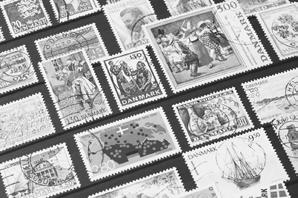
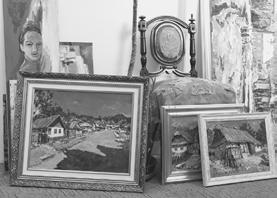

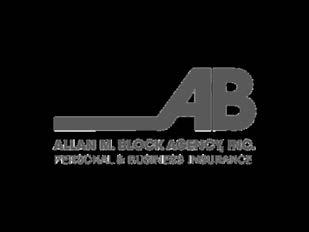
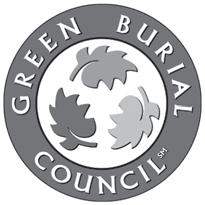
18 Seniors Transition Services, LLC srtrans1@gmail.com BETTY AMICO 914-962-5475 Seniors Transition Services, LLC strans1@gmail.com Reduce the Stress of Downsizing SERVICES OFFERED • Assist You/Your Family in Vacating Apartments • Pack Charitable Donations • Obtain Estimates from Movers • Achieve Maximum Tax Benefit • Work Within Your Time Frame Insured Call for Free Estimate 914-962-5475 SERVICES OFFERED • Assist You/Your Family in Vacating Apartments • Pack Charitable Donations • Obtain Estimates from Movers • Achieve Maximum Tax Benefit • Work Within Your Time Frame Insured Call for Free Estimate 914-962-5475 Seniors Transition Services, LLC friend4619@yahoo.com 914-962-5475 ALLAN BLOCK INSURANCE sales@ambins.com | (914) 631-4353 www.allanblockinsurance.com You've spent years collecting items that matter to you. Make sure they're properly insured with a Personal Articles policy. Coffey Funeral Home Inc. Ninety-One North Broadway Tarrytown NY 10591 (914) 631-0983 www.coffeyfuneralhome.com NANCY COFFEY • MICHAEL COFFEY Long-time Supporters of Kendal View Now in our 5th Generation Continuously Owned and Operated By the Coffey Family Since 1911 Pre-Planning Available
Dentistry, as with other health services, is rapidly changing. Technology is constantly improving, allowing us to deliver quality care in less time and with less stress. Most importantly though, dentistry is still an art as well as a science. As a health service, the patient care is provided not only by the doctor, but by the entire office staff. Dentistry as a health service means properly placed restorations and courteously answered phones. Rapidly changing technology will not change this philosophy of service.
Kevin Jong, DMD & Peter Zegarelli, DDS
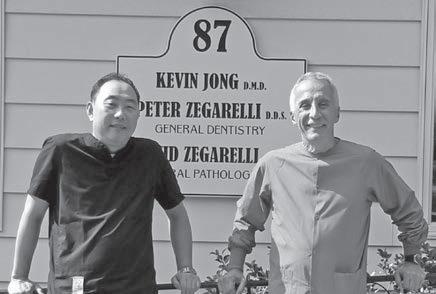
87 North Broadway • Tarrytown, NY 10591 • 914-631-1800
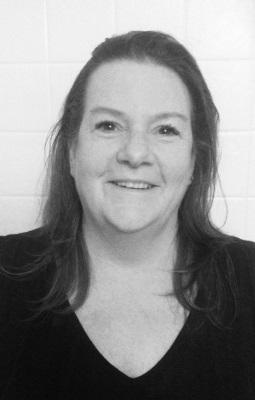

Website: www.drzegarelli.com • Email: info@drzegarelli.com
•
•
Owner: Jean Mayer, EA
jeanmayertax@gmail.com
19
www.mickeys-automotive.com Free Pick-Up and Delivery for All Kendal Residents mickey@mickeys-automotive.com Mickey Keegan, Owner Keeping the Kendal community mobile with one-stop auto repair services 914-631-8868 WE SERVICE ALL CARS FRONT END SPECIALISTS · TIRES WEEL ALIGNMENT & BALANCE EXHAUST REPAIR · HEAT/AC COOLANT · BRAKES · AND MORE! FYO Accounting & Tax Services
In-home service
Tax Preparation & Planning
Bookkeeping
The Zegarelli dental office has been located in Tarrytown since 1982. We have been serving KoH residents since the Kendal opening day in 2005.
•
•
•
Filing & Organizing
Bill Paying 25% discount to Kendal residents. Off-Season Tax Special: Provide your prior year tax returns and receive a free review, consultation, and fee quote. No obligation.
Serving residents
at Kendal on Hudson since its opening. 914-862-2305
•
•
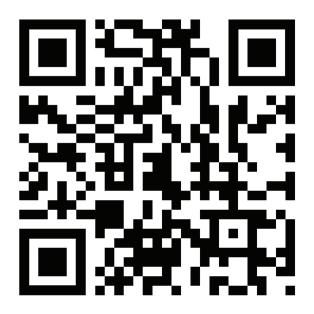
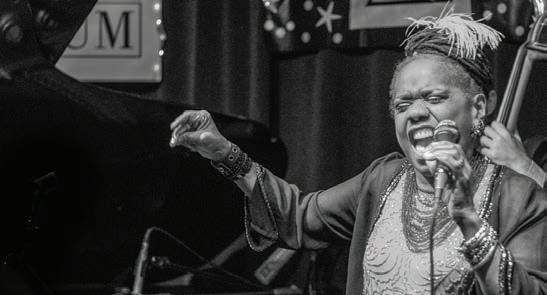
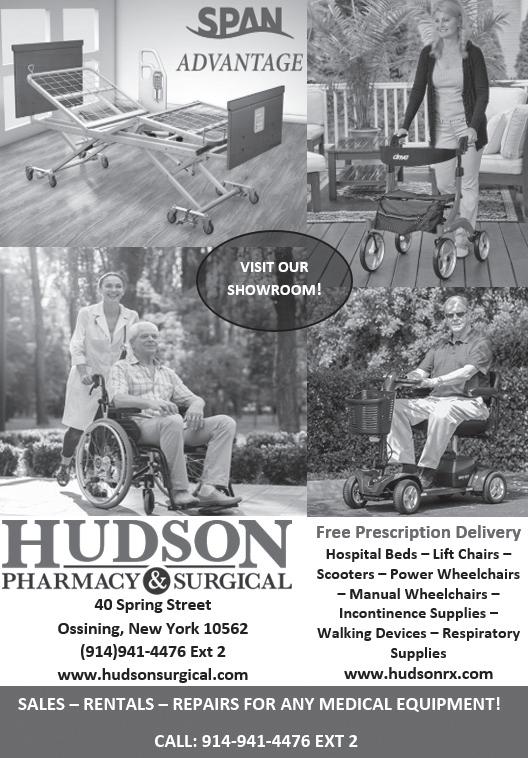

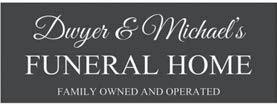
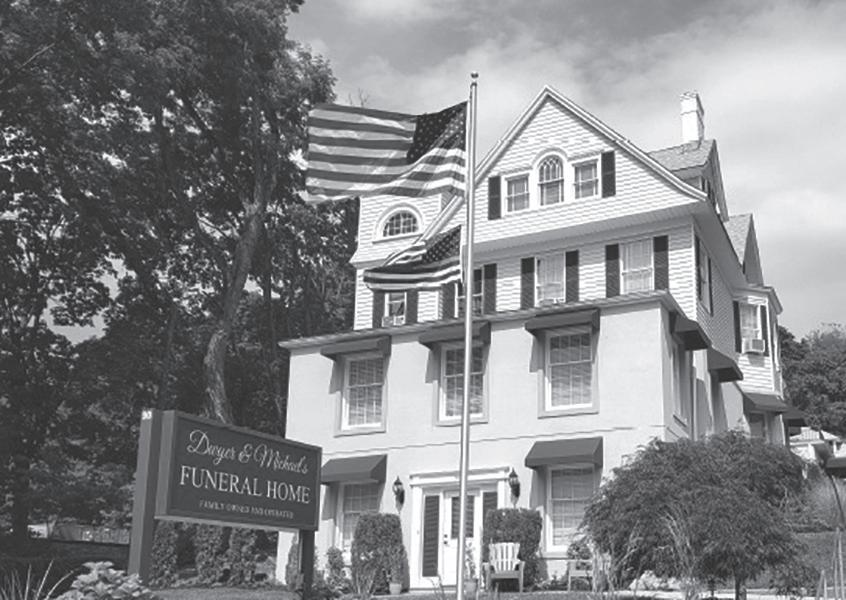
20
Most Affordable Funerals in the River Towns
Largest Chapel in the Tarrytown Area
•
•
Smaller Chapels for More Intimate Gatherings
Generous Discounts for Veterans and Retired First Responders
70 Car Parking Lot Adjacent to Our Building
& Operated by the Carpinone Family –Over 100 Years of Experience 90 N. Broadway, Tarrytown 914-631-0621 www.dwyermichaelsfh.com On Premises 24-Hours/7-Days-a-Week to Serve Your Needs Se Habla Español Serving All Faiths Proudly Serving Tarrytown and Sleepy Hollow with Fairness and Compassion
you’ve listened to music at the Jazz Forum you don’t want to go anywhere else.”
Harvey, Jazz Forum Patron Performances Every Friday, Saturday & Sunday Great Food & Drink • World Renowned Musicians 5YEAR S 1 Dixon Lane Tarrytown, NY 914-631-1000 jazzforumarts.org Presenting Sponsor 10 Minute Drive from Kendal on Hudson! SCAN TO SEE OUR UPCOMING SCHEDULE!
•
Owned
WESTCHESTER’S PREMIER JAZZ CLUB “Once
-

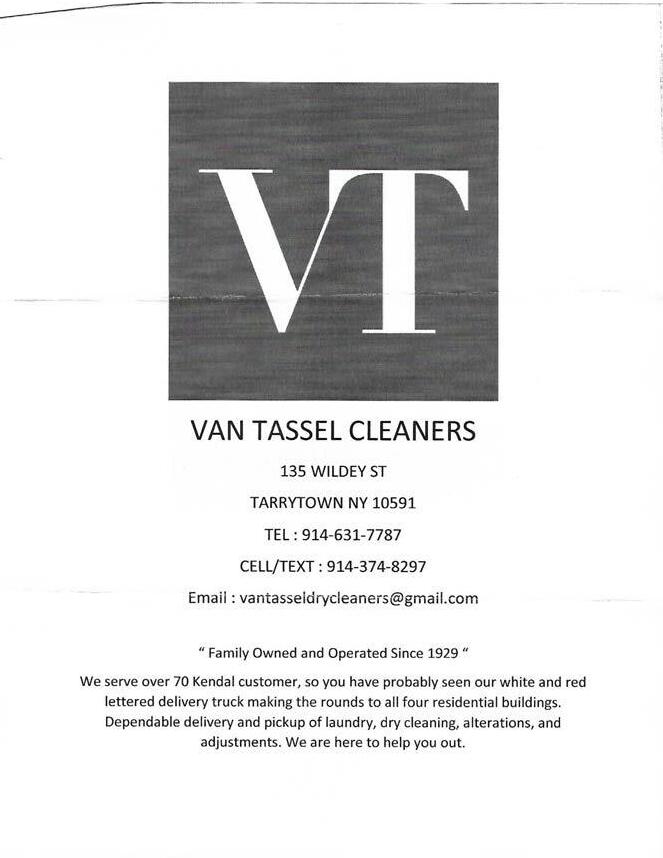
21 Your Great Expectations... Can Be Filled. GRAPE EXPECTATIONS Wine and Liquor Merchant A few doors from C Town. Free parking in the back away from traffic. Knowledgeable and friendly staff will answer questions and help you select from the largest and most unique display in the Rivertowns. ❖ Competitive pricing and discounts. ❖ I look forward to having you join our many Kendal customers. John Sarofeen, Proprietor Tel. 914-332-0294 92 N. Broadway, Tarrytown, NY
Enrico Hair Care, Inc.
Enrico Hair Care, Inc.


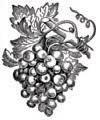
Yolanda is available for pedicure by appointment
MondaysEnrico cuts and styles and Tatiana consults on color
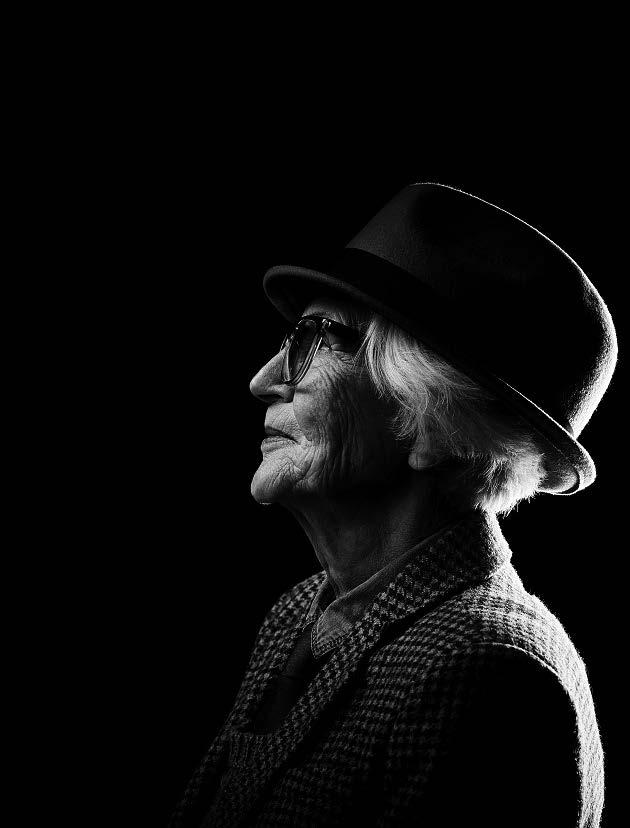
Wednesday
KIm does hair color/cut and styling
Wednesdays
Hairstyling by Kim
Friday
Wednesdays through FridaysMaria does manicures
Maria does manicure and waxing
Sandra does hair color/cut and styling
Saturday
Enrico does hair color/cut and styling
Thursday and FridaysHairstyling by Toni Fridays -
Christina does pedicures, manicures and hair.
Call for appointments 914-523-6382 or 914-922-1057
Call for appointments 523-6382 or 922-1057
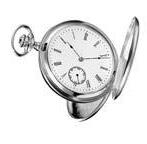
22 Westchester’s Finest Clockmaker since 1951 Harnik Bros. JEWELERS Specializing in Watch Repair • Clock Repair Jewelry Repair & Remodeling Battery and Band Replacements Tall Case • Ships • Atmos • Carriages Museum Quality Restoration Since 1951 All Work Done On Premises Free Estimates Pick Up & Delivery 914.631.3224 Harnik Bros. Jewelers 6 North Broadway, Tarrytown, NY 10591
Wealth management, tax and legacy planning strategies for anyone who may benefit from professional guidance after retirement, loss of a spouse, divorce or employment change. I N TR AN SI T ION life Let our team help! Call us at 914-762-4760 or visit www.hudsonfs.com. Hudson Financial Services, Inc. 1249 Pleasantville Road, Briarcliff Manor, NY 10510 Securities and investment advisory services offered through Cetera Advisor Networks LLC, member FINRA/SIPC, a broker/dealer & Registered Investment Adviser. Cetera is under separate ownership from any other named entity. Neither Cetera Advisor Networks LLC nor its representatives offer tax or legal advice. Please consult your attorney or tax advisor for guidance.
Your partner in health and wellness



Vitality at Phelps Hospital offers a variety of free programs and services to help you stay active and engaged as you age. We provide educational healthrelated classes, events, support programs, and expert care to enhance your well-being. We invite you to enjoy our activities and social gatherings to keep you connected to your health and wellness, while having fun with your peers.
For more information and any questions, please email vitality@northwell.edu. To see all of our upcoming free events, please visit the events page on the Phelps website at: phelps.northwell.edu/events
23
NORTHWELL HEALTH
PHELPS HOSPITAL
VITALITY
BETTY AMICO 914-962-5475 Seniors Transition Services, LLC strans1@gmail.com Reduce the Stress of Downsizing SERVICES OFFERED • Assist You/Your Family in Vacating Apartments • Pack Charitable Donations
Obtain Estimates from Movers
Achieve Maximum Tax Benefit
Work Within Your Time Frame Insured Call for Free Estimate 914-962-5475 Why drive when you can call Owner: Marco Araujo Call: 914-703-0501 Or 914-631-2277 Reliable, friendly service to all airports, NYC, local service and trips throughout Westchester, and other destinations. Competitive Rates car & limo service inc. All County AIRPORT • LOCAL • OUT OF TOWN
•
•
•

 by Llyn Clague
by Llyn Clague



 Hubert B. Herring
Hubert B. Herring





























